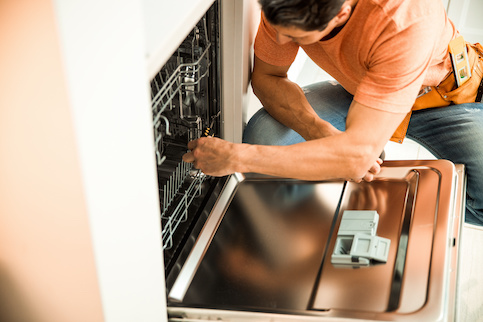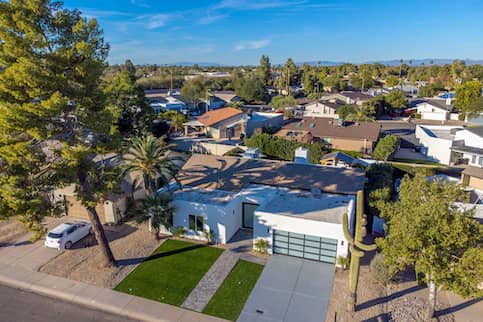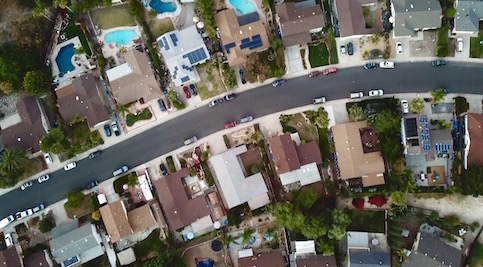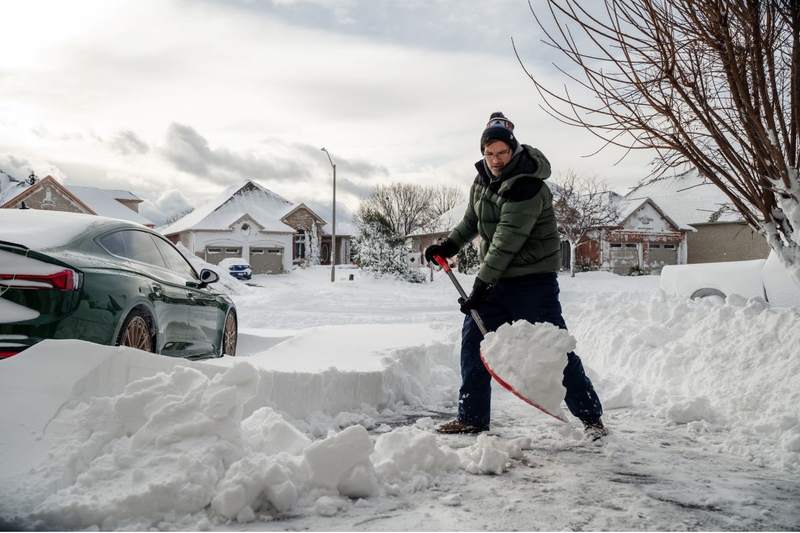A home is a significant asset. If it’s damaged, it could lead to significant financial losses. You can reduce this financial risk through homeowners insurance claims, which can help you cover the cost of repairs. Most lenders require buyers to purchase homeowners insurance to secure a mortgage, so it’s worth it to explore a few statistics to better understand the importance of having it.
Homeowners Insurance Statistical Overview
Most homeowners have homeowners insurance. But the statistics behind this critical coverage might inspire you to check your coverage. The following statistics were compiled through information provided from the Insurance Information Institute (III), 2021-2023, unless otherwise noted.
- What percentage of homeowners have home insurance?
- 88%: Approximately 88% of homeowners purchased homeowners insurance.
- What is the average or median insurance coverage amount?
- $200,000 – $299,000: The median amount of home insurance coverage in 2020, according to National Association of Insurance Commissioners, 2022
- $200,000 – $299,000: The median amount of home insurance coverage in 2020, according to National Association of Insurance Commissioners, 2022
- What is the average home insurance premium?
- $1,398: The average home insurance premium in 2021
- What percentage of insured homes had a claim?
- 3%: The percentage of insured homes that filed a claim in 2021
- What percentage of claims are property damage claims?
- 7%: Property damage accounted for 97.7% of homeowners insurance claims in 2021
- What was the average payout for a property damage claim?
- $14,935: The average payout for a property damage claim in 2021
The vast majority of homeowners insurance claims are for property damage, not liability claims. As a homeowner, this means the coverage will help you pay for expensive repairs after unexpected damage.
See What You Qualify For
Buy A Home
Discover mortgage options that fit your unique financial needs.

Refinance
Refinance your mortgage to have more money for what matters.
Tap Into Equity
Use your home’s equity and unlock cash to achieve your goals.
Property Damage Claim Statistics
Property damage can get expensive quickly. But the cause of the property damage tends to have a big impact on the payouts.
Below is a closer look at homeowners insurance property damage claims by cause in 2021, according to the III.
Type Of Property Damage | Percentage Of Claims | Average Claim Payout |
|---|---|---|
Wind and hail | 39.4% | $12,913 |
Fire and lightning | 24.8% | $83,519 |
Water damage and freezing | 23.5% | $12,514 |
Theft | 0.7% | $4,646 |
Etc. | 9.4% | $7,460 |
Fire and lightning damage tend to be the most expensive claims. But it’s worth noting that flood insurance is sold separately from homeowners insurance, so that type of water damage will not be reflected in these numbers.
Additionally, damage from a hurricane may or may not be covered by your insurance company. The extent of your coverage varies based on the specifics of your homeowners’ insurance policy.
Cost Of Making A Property Damage Claim
When you make a claim to your homeowners insurance policy, the insurance company may raise your future insurance premiums. In general, you can expect your homeowners insurance costs to increase by 7% to 10% after filing a claim. But, of course, the exact costs vary based on your unique situation.
If you make more than a single claim, you might find your insurance costs rise even higher. For example, making five homeowners insurance claims will likely result in significantly more expensive insurance than filing a single claim.
As a homeowner, it’s important to weigh the potential costs of an increased premium against the repair costs. If you can cover a minimal amount of damage without leaning on your homeowners’ insurance policy, then you might end up saving money in the long run.
Typically, your claims history is recorded for up to 5 years. With that, the increased premium amount might fall after the claim falls off your record.
The good news is that there are several instances when a property damage claim shouldn’t raise your insurance premiums. Here’s when you shouldn’t expect higher premiums:
- Inquiring about a claim but not submitting one.
- Filing a claim that gets denied.
Additionally, some insurance claims are more likely to lead to a rate hike than others. For example, non-weather-related claims tend to come with more of a rate hike than weather-related claims. Some of these claims that might lead to higher insurance premiums include water damage, mold, theft, dog bites, liability claims and fire.
Homeowners Insurance Statistics By State
Insurance companies look at a wide range of factors when determining your insurance premiums. The location of your home is one critical factor that can have a big impact on your homeowners’ insurance premiums.
Homeowners in certain states tend to pay significantly more for home insurance. Here’s a look at the most expensive states:
- The average cost of homeowners insurance in Florida in 2020 was $2,165.
- The average cost of homeowners insurance in Oklahoma in 2020 was $2,040.
- The average cost of homeowners insurance in Louisiana in 2020 was $2,038.
But homeowners in other locations tend to enjoy significantly lower rates. Here’s a look at the states with the lowest average premiums:
- The average cost of homeowners insurance in Oregon in 2020 was $735.
- The average cost of homeowners insurance in Wisconsin 2020 was $762.
- The average cost of homeowners insurance in Utah in 2020 was $764.
While your exact homeowners insurance costs will vary based on your unique situation, it’s helpful to see the average costs for your state. The benchmark can help you determine whether you are overpaying or getting a good deal on your home insurance costs.
Explore the average cost of homeowners insurance by state in 2019, according to III. Note that the incurred losses are not based on an individual but across all those insured within the state.
State | Average Premium | Incurred Losses By State |
|---|---|---|
Alabama | $1,501 | $911,785,000 |
Alaska | $989 | $78,263,000 |
Arizona | $866 | $758,282,000 |
Arkansas | $1,498 | $450,791,000 |
California | $1,241 | $15,537,312,000 |
Colorado | $1,667 | $1,847,521,000 |
Connecticut | $1,582 | $530,780,000 |
Delaware | $907 | $101,998,000 |
Florida | $2,165 | $8,338,668,000 |
Georgia | $1,403 | $2,281,253,000 |
Hawaii | $1,245 | $124,226,000 |
Idaho | $810 | $256,968,000 |
Illinois | $1,144 | $2,872,152,000 |
Indiana | $1,021 | $1,084,975,000 |
Iowa | $998 | $656,054,000 |
Kansas | $1,478 | $639,267,000 |
Kentucky | $1,174 | $600,526,000 |
Louisiana | $2,038 | $616,808,000 |
Maine | $956 | $197,973,000 |
Maryland | $1,169 | $903,136,000 |
Massachusetts | $1,667 | $738,068,000 |
Michigan | $1,002 | $1,477,520,000 |
Minnesota | $1,481 | $1,855,159,000 |
Mississippi | $1,674 | $453,816,000 |
Missouri | $1,301 | $1,323,972,000 |
Montana | $1,347 | $138,443,000 |
Nebraska | $1,586 | $831,422,000 |
Nevada | $824 | $310,490,000 |
New Hampshire | $1,048 | $167,682,000 |
New Jersey | $1,277 | $1,027,437,000 |
New Mexico | $1,151 | $399,164,000 |
New York | $1,356 | $2,255,396,000 |
North Carolina | $1,119 | $1,239,572,000 |
North Dakota | $1,230 | $66,665,000 |
Ohio | $871 | $1,382,572,000 |
Oklahoma | $2,040 | $733,822,000 |
Oregon | $735 | $556,768,000 |
Pennsylvania | $967 | $1,450,507,000 |
Rhode Island | $1,788 | $156,012,000 |
South Carolina | $1,327 | $721,977,000 |
South Dakota | $1,222 | $186,924,000 |
Tennessee | $1,296 | $1,057,190,000 |
Texas | $2,000 | $6,923,450,000 |
Utah | $764 | $285,032,000 |
Vermont | $984 | $91,470,000 |
Virginia | $1,107 | $1,294,734,000 |
Washington | $937 | $936,217,000 |
Washington, D.C. | $1,229 | $74,814,000 |
West Virginia | $974 | $191,015,000 |
Wisconsin | $762 | $821,867,000 |
Wyoming | $1,308 | $134,152,000 |
Take the first step toward buying a house.
Get approved to see what you qualify for.
Homeowners Insurance Facts And Statistics: FAQs
You may have questions about homeowners insurance claims statistics. We have answers to some of the most common.
What is the average length of time it takes for a home insurance claim to be paid?
An insurance company may take weeks or months to finalize a claim. But in some cases, it can take up to 90 days to receive your payment.
How often does the average homeowner file a claim?
Each year, around 5% of insured homeowners file a claim. Some insurance experts estimate that homeowners tend to file a claim once every 10 years.
Which state makes the most homeowners insurance claims?
Florida makes the most homeowners insurance claims for lightning, which can easily cause damage to your home. The state is also prone to claims from hurricanes.
How Many Insurance Claims Are Filed Each Year?
No exact data exists on how many home insurance claims are filed each year. However, we can calculate a rough estimate: About 3.5 million annually. This assumes an estimated 70 million insured homes filing claims at a frequency of 1:20. This estimate does not take into account the possibility of multiple claims filed per household. Numbers may also be skewed by renters participating in the 70 million estimate.
What Percentage Of People Use Their Homeowners Insurance?
In the 5-year period between 2015 – 2019, 5.7% of insured homeowners filed a claim. In other words, about 1 in 20 insured homes file a claim each year.
Which states have the most hail damage claims?
When you think of a homeowners insurance claim, your mind might jump to a significant weather event like a tornado or hurricane. But many homeowners face hail damage each year, which leads to filing a claim. The states with the most hail damage claims include Texas, Colorado and Nebraska.
Which states have the most dog bite claims?
Dog bite claims compose a significant number of liability claims. The states with the most dog bite claims in 2022 included California, Florida and Texas. This type of claim tends to be expensive for insurance companies. For example, the average cost of a dog bite claim in California was $49,025 in 2021.
What Percentage Of People Don’t Have Homeowners Insurance?
Estimates vary on the percentage of people without homeowners insurance. However, the majority of homeowners have insurance because most lenders require it before you can close on your loan in order to reduce the lender’s financial risk.
The Bottom Line
A good homeowners insurance policy can protect your financial situation and investment. If an unexpected occurrence damages your primary residence, the policy can kick in to help you pay for repairs. Without this safety net, it can be difficult to cover the costs of an expensive home repair.
As a homeowner, it’s important to regularly review your homeowners’ insurance policy to make sure it suits your needs. Confirm that the policy is offering enough financial protection for your home. Don’t forget that you can always change insurance to fit your needs.

Sarah Sharkey
Sarah Sharkey is a personal finance writer who enjoys diving into the details to help readers make savvy financial decisions. She’s covered mortgages, money management, insurance, budgeting and more. She lives in Florida with her husband and dog. When she's not writing, she's outside exploring the coast. You can connect with her on LinkedIn.












